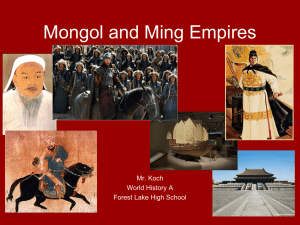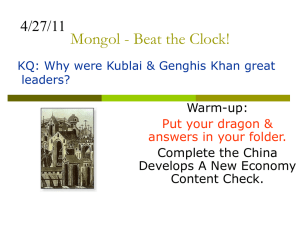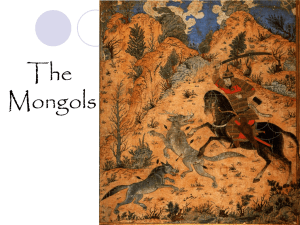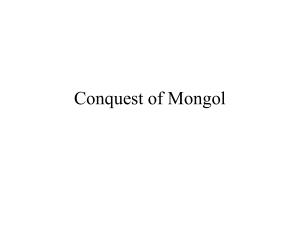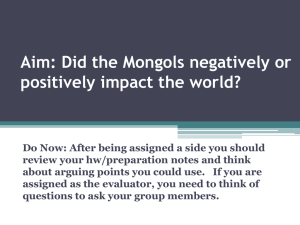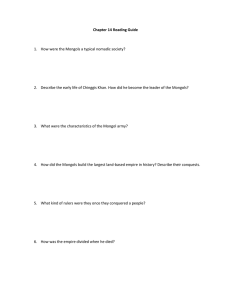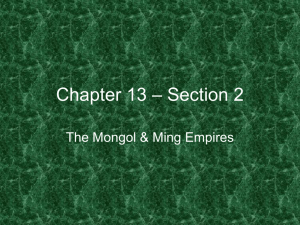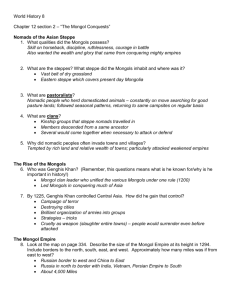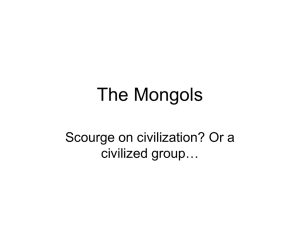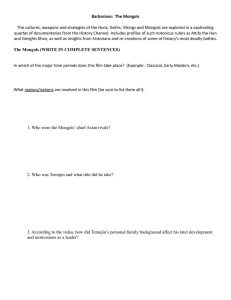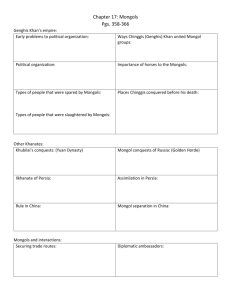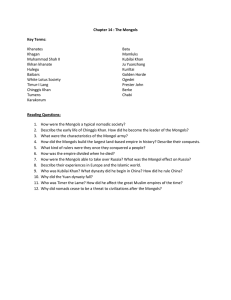Ancient Chinese Dynasties Yuan to Ming
advertisement
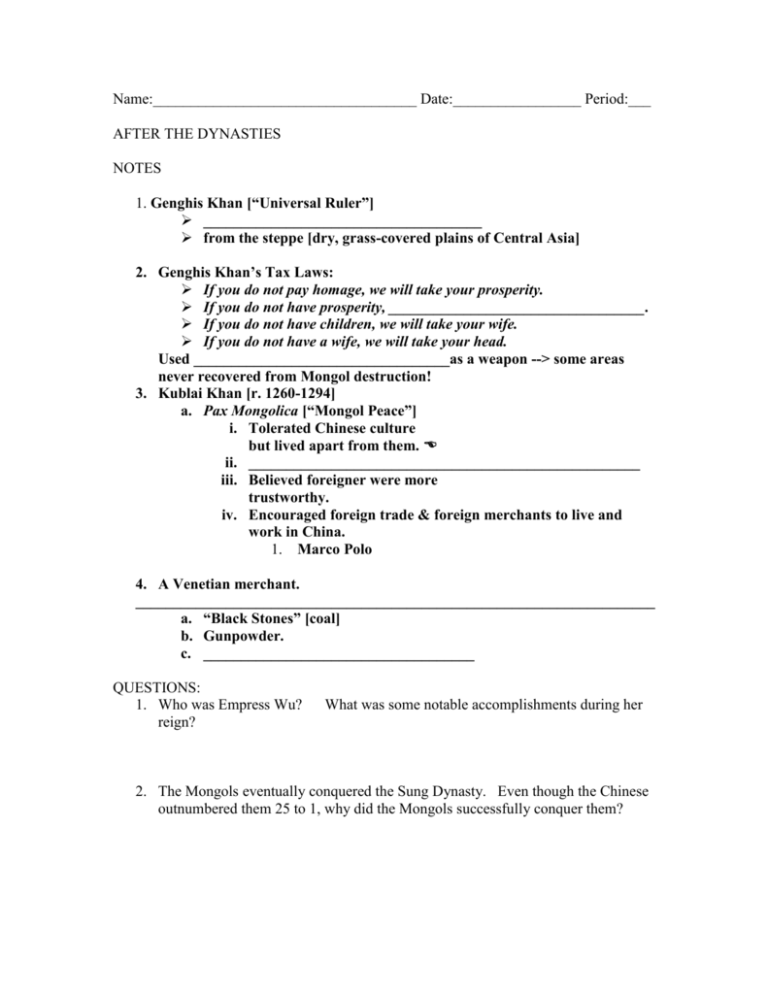
Name:___________________________________ Date:_________________ Period:___ AFTER THE DYNASTIES NOTES 1. Genghis Khan [“Universal Ruler”] _____________________________________ from the steppe [dry, grass-covered plains of Central Asia] 2. Genghis Khan’s Tax Laws: If you do not pay homage, we will take your prosperity. If you do not have prosperity, __________________________________. If you do not have children, we will take your wife. If you do not have a wife, we will take your head. Used __________________________________as a weapon --> some areas never recovered from Mongol destruction! 3. Kublai Khan [r. 1260-1294] a. Pax Mongolica [“Mongol Peace”] i. Tolerated Chinese culture but lived apart from them. ii. ____________________________________________________ iii. Believed foreigner were more trustworthy. iv. Encouraged foreign trade & foreign merchants to live and work in China. 1. Marco Polo 4. A Venetian merchant. _____________________________________________________________________ a. “Black Stones” [coal] b. Gunpowder. c. ____________________________________ QUESTIONS: 1. Who was Empress Wu? reign? What was some notable accomplishments during her 2. The Mongols eventually conquered the Sung Dynasty. Even though the Chinese outnumbered them 25 to 1, why did the Mongols successfully conquer them? 3. What advantages did the Chinese have, in battle, that should have helped them tremendously? 4. Who was Yelu? How did he save China from total destruction by the Mongol raiders? 5. Give your opinion of Yelu’s wisdom. Do you agree or disagree with what he did? Why? 6. How could the Mongols benefit from taxing the land that the Chinese farmed? 7. How do you think the foreign traders would feel about “doing business” with the Mongol conquerors? Why? 8. What was life like under the rule of Kublai Khan? 9. How long did the Mongols rule China? Why do you think they were eventually conquered by the Manchu group? 10. What was the Boxer Rebellion? 11. Why did a more democratic government become established in China in 1911? 12. CRITICAL THINKING – What are some characteristics of a good leader? How might men and women lead a country in different ways?
